We only believe in those thoughts which have been conceived not in the brain but in the whole body
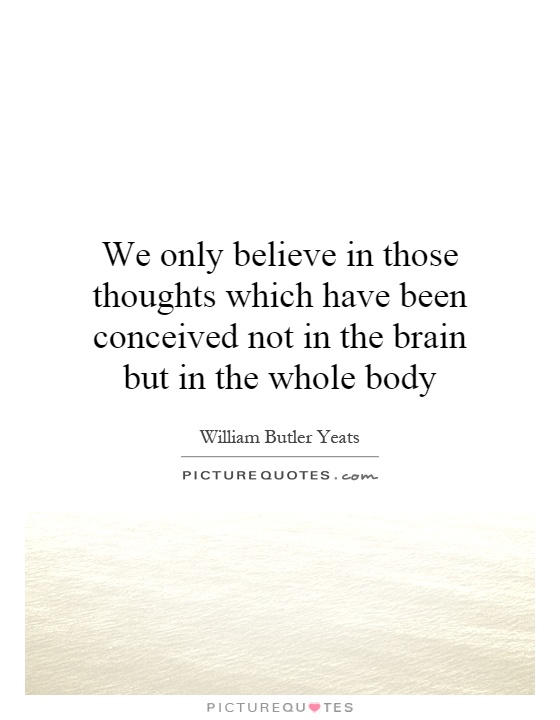
We only believe in those thoughts which have been conceived not in the brain but in the whole body
William Butler Yeats, the renowned Irish poet and playwright, was a firm believer in the power of the body to conceive thoughts. He understood that true inspiration and creativity come from a place deeper than just the mind; they come from the entire being. Yeats believed that the body, with all its senses and emotions, plays a crucial role in the process of thought formation.In his poetry, Yeats often explored the connection between the physical and the metaphysical, the tangible and the intangible. He delved into the depths of human experience, drawing on both the conscious and unconscious aspects of the self. For Yeats, the body was not just a vessel for the mind; it was an integral part of the creative process.
One of Yeats' most famous poems, "The Second Coming," reflects his belief in the power of the whole body to conceive thoughts. In this poem, he describes a world in chaos, where "the best lack all conviction, while the worst are full of passionate intensity." Yeats suggests that true belief and conviction come from a place deeper than just the mind; they come from the entire being, from the gut, the heart, and the soul.
Yeats' emphasis on the whole body as the source of true belief and creativity is also evident in his plays. In works such as "The Countess Cathleen" and "The Land of Heart's Desire," he explores the intersection of the physical and the spiritual, the earthly and the divine. Yeats understood that true inspiration comes from a place beyond rational thought, from a place where the body and the soul are in harmony.


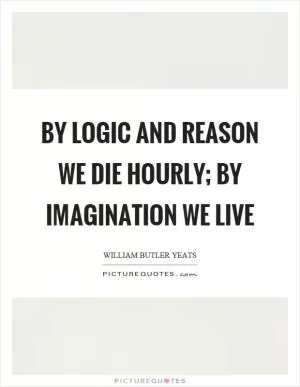


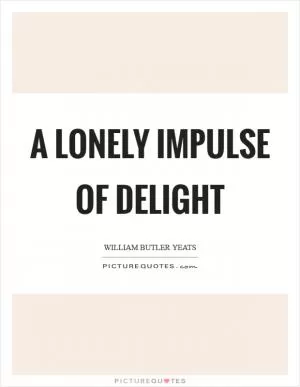
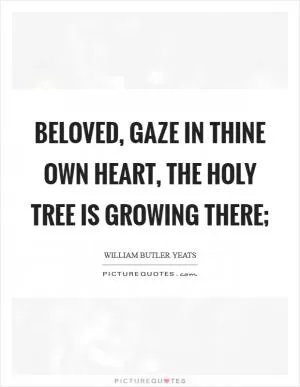
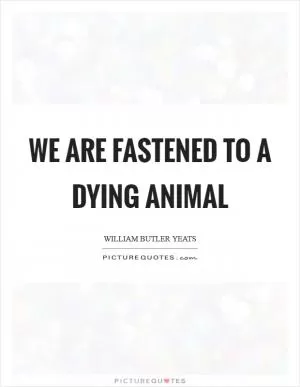
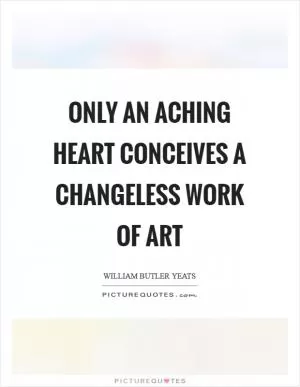
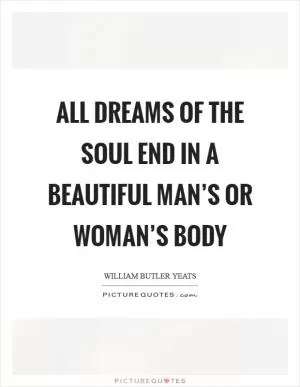


 Friendship Quotes
Friendship Quotes Love Quotes
Love Quotes Life Quotes
Life Quotes Funny Quotes
Funny Quotes Motivational Quotes
Motivational Quotes Inspirational Quotes
Inspirational Quotes